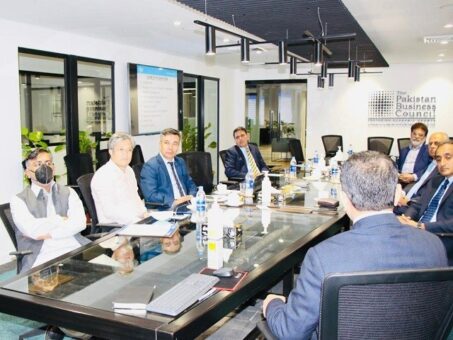KARACHI: The Federal Board of Revenue (FBR) has been urged to make Google pin location mandatory for Tier-1 retailers to stop misusing sales tax registration for point of sales (POS).
Pakistan Business Council (PBC) in its proposals for budget 2022/2023 submitted to the FBR proposed to make Google pin location for Tier-1 retailers.
READ MORE: Commercial importers misusing tax registration
The PBC suggested measures for preventing misuse of POS by importers who use fake registration profile of retailer.
In order to avail / misuse reduced rate of sales tax at 12 per cent on supplies of textile (which is available on supply of finished textile article through integrated POS system for retail outlets), some unscrupulous persons, after importing raw materials get tolling bills issued in their name from other manufacturers.
Thereafter, such imported raw material is being sold as finished textile article through POS integrated with FBR system to avail reduced sales tax rate of 12 per cent.
READ MORE: FBR urged to massively reduce tax rates for return filers
FBR, view notification dated January 4, 2022 has already clarified that bulk supply through POS is tantamount to be treated as wholesale and hence would be chargeable to standard rate of 17 per cent sales tax.
To prevent this unscrupulous practice, the following should be made mandatory for entities whose imports are over 70 per cent of their output and who have a POS facility:
a) Should declare the number of their retail shops and
b) Provide the square ft. retail space, detailed address, and Google pin location of all the retail stores
c) Report per shop per month sales volume and invoices along with the monthly sales tax return.
READ MORE: Commercial importers’ under invoicing destroying industry
Earlier, the PBC also highlighted practice of commercial importers misusing tax registration to avail lower rates.
Considering the fact that most of the commercial importers have been misusing the lower rate of tax otherwise available to manufacturers, therefore, FBR has reduced down the rate of tax at import stage to 1 per cent/2 per cent/5.5 per cent [on the basis of HS codes] for manufacturers as well as commercial importers.
READ MORE: FBR’s database mining suggested for new taxpayers
However, instead of making rate of tax at par for both commercial importers and manufacturers, PBC recommends to place system-based controls to track those commercial importers involved in under invoicing and importing under the garb of registration as manufacturers.




